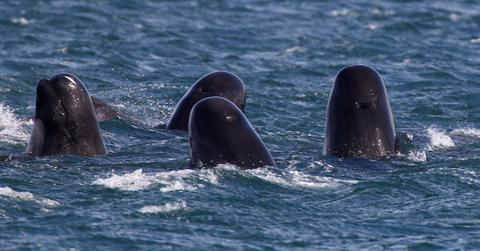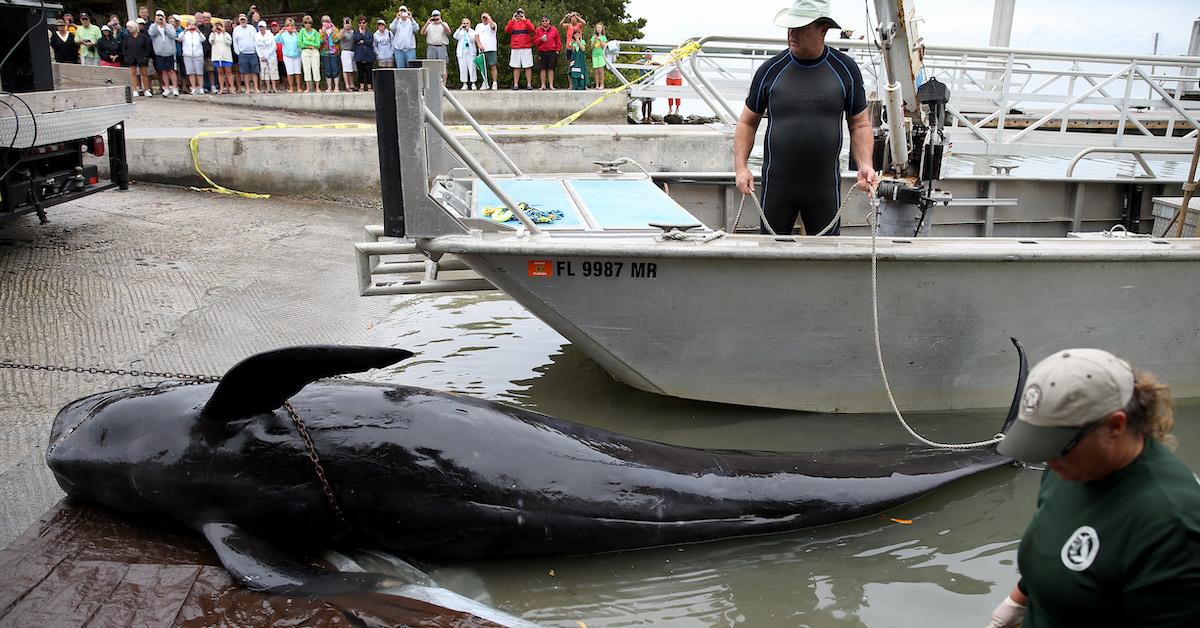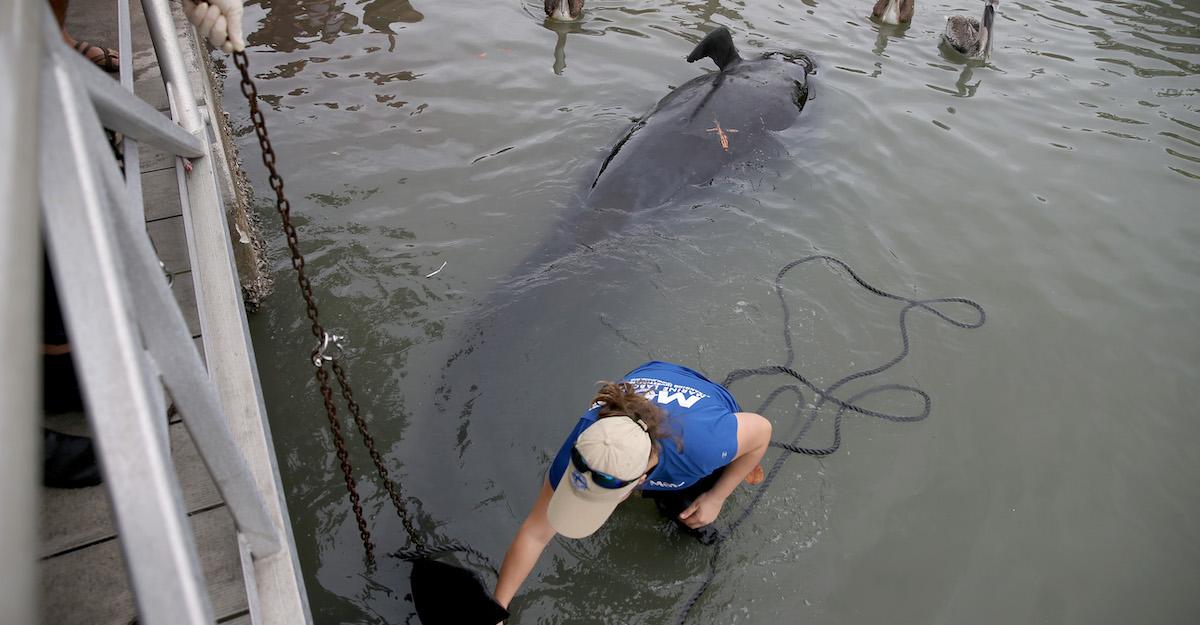500 Pilot Whales Die After Beaching Across New Zealand’s Chatham Islands
Published Oct. 11 2022, 11:31 a.m. ET

There's nothing more devastating than a whale beaching itself — so imagine what New Zealand beachgoers thought after discovering 500 of them.
Over the weekend, about 500 pilot whales stranded themselves in New Zealand, along the coast of the Chatham Islands. The islands are notorious stranding spots for whales, so this isn't the first time, though environmentalists and locals were absolutely devastated, after all of them had to be euthanized.
Dave Lundquist, marine technical adviser at New Zealand’s Department of Conservation, told Al Jazeera that the whales had undergone extensive medical assessments. But because the islands are so remote, and these types of rescues are so difficult, it was ultimately decided the surviving animals would be euthanized.
“This decision is never taken lightly, but in cases like this it is the kindest option,” Lundquist stated.
Of course, refloating them would have been ideal — but in this case, it wasn't an option.
“These mass strandings are distressing events, and while we always hope surviving whales are able to be refloated, this wasn’t an option here,” reads a statement from Project Jonah, a nonprofit that deals with beached whales, as per Al Jazeera. The statement was released just after the first 200 stranded whales were discovered.

500 whales have died en masse, after becoming stranded along New Zealand's coast.
Rescue teams and conservationists felt defeated after hundreds of pilot whales succumbed to beachings in the Chatham Islands. They washed up about 520 miles from the main South Island, in two separate strandings this past weekend. And sadly, most were already dead when they washed ashore, while the others were on the brink of death.
“Having such a high number of whales in one location is unusual, but it’s certainly not unheard of,” Daren Grover from Project Jonah told CNN.
As previously mentioned, the remoteness of the islands, their few inhabitants, and shark-infested waters made it very difficult for whales and rescuers alike to arrive quickly, and remain safe.
"We're talking about harsh conditions, a very small number of staff and few residents: this really is a case of assessing if any are still alive and likely to end in euthanasia again," Massey University marine ecologist Professor Karen Stockin stated, per Sky News.
The 500 pilot whales came from two “super pods,” so it goes without saying this mass stranding event will take a toll on local populations for the foreseeable future.
And while this is absolutely heart-breaking, it isn't uncommon for pilot whales to strand themselves. But why does that happen?

Why do pilot whales strand themselves?
Oftentimes, whales tend to beach if they are sick, underfed, or misled by signals from boats. But why do pilot whales beach? The answer isn't quite as clear.
Since they are highly social animals, herds will beach together if even one is sick. But in this case, according to CNN, it wasn't clear why these two pods had stranded in the first place.
Sadly, the Chatham Islands are no stranger to beachings, either — the islands, which are hoome to around 600, are considered "stranding hotspots." One of the worst strandings on-record took place in 1918, when 1,000 pilot whales beached.